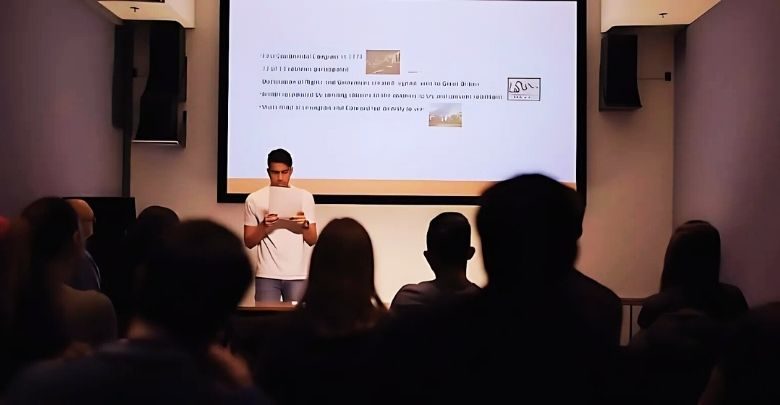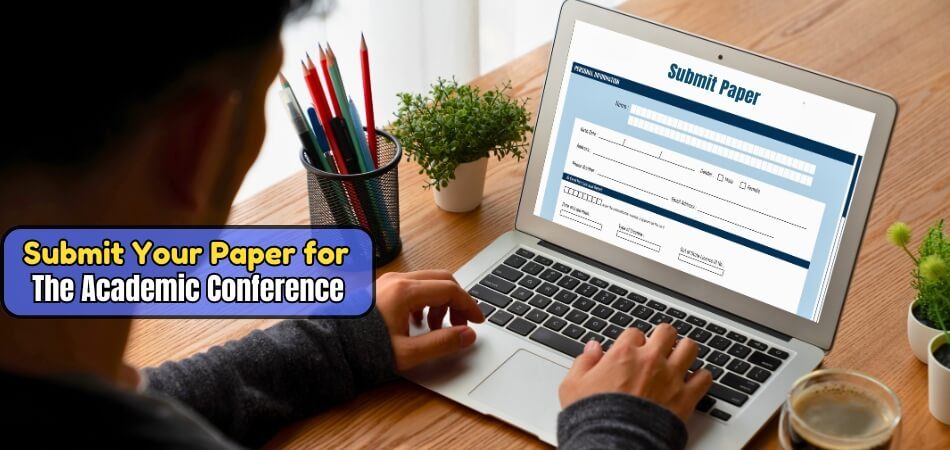Submitting a paper to an academic conference is a significant step in sharing your research with the world. It’s not just about presenting your findings; it’s an opportunity to connect with experts, gain feedback, and build your academic profile. But how do I submit a paper to an academic conference?
To submit a paper, you’ll need to select a conference that aligns with your research field, prepare your paper according to submission guidelines, write a compelling abstract, and meet the deadlines. The process involves adhering to strict formatting and guidelines, which vary from conference to conference.
Ready to dive into the details? Keep reading to discover the step-by-step process, tips, and strategies that will boost your chances of having your paper accepted at your desired conference.
Importance of Submitting a Paper in Academic Conferences
Submitting a paper to academic conferences is more than just a formal requirement for researchers. It’s a pathway to professional growth, meaningful networking, and valuable feedback. Here’s why this step is crucial in advancing your academic journey:
Showcasing Research Work
Submitting your paper allows you to present your research to a broader audience, demonstrating your work’s relevance and importance. It’s a chance to share new findings, methodologies, and theories that can contribute to your field. This exposure not only highlights your expertise but also positions you as a thought leader among peers.
Gaining Constructive Feedback
Presenting at conferences provides an opportunity to receive feedback from experts in your field. Attendees can offer insights, point out potential areas of improvement, and even suggest new directions for your research. Such feedback from diverse perspectives can help identify blind spots or assumptions in your research, ultimately strengthening your arguments.
Networking Opportunities
Conferences bring together researchers, scholars, and industry professionals from various backgrounds. Submitting a paper can open doors to meaningful discussions, collaborations, and partnerships. These connections often lead to co-authorships, future research projects, and even job opportunities in your academic or professional career.
Increasing Academic Credentials
Successfully presenting a paper at a conference adds credibility to your academic resume. It demonstrates your commitment to your research and your willingness to engage with the academic community. This credibility can be instrumental in securing grants, scholarships, or even faculty positions in the future.
Staying Updated with Trends
Conferences are platforms where the latest trends, ideas, and innovations are discussed. By participating, you can stay informed about the current developments in your field and identify gaps for future research.
So, submitting a paper to academic conferences is a vital step for researchers. It not only upgrades your academic profile but also opens doors to greater opportunities and career growth.
How Do I Submit a Paper to an Academic Conference?
Submitting a paper to an academic conference is a valuable opportunity to present your research, gain feedback, and build professional connections. But to make your submission successful, you must follow specific steps that ensure your paper meets the conference’s standards and guidelines.
Step 1: Select the Right Conference
Choosing the right conference is the first step toward a successful submission. Look for conferences that align with your field of research and professional interests. Explore notable conferences to participate in, considering those that match your research scope, reputation, and audience reach. Review the conference’s themes, reputation, and past editions as well.
Step 2: Understand Submission Requirements
Each conference has its own set of submission guidelines that you must follow precisely. This often includes word limits, paper formats, citation styles, and specific topics covered. Read the requirements thoroughly, as failing to adhere to them may result in disqualification.
Step 3: Prepare Your Research
Before submitting, make sure your research is well-organized and clearly articulated. Begin by structuring your paper with a strong introduction, methodology, findings, and conclusion. Your research should be original, relevant, and contribute meaningfully to the field.
Step 4: Write an Effective Abstract
The abstract is a vital part of your submission, summarizing your research’s core findings and contributions. It should be concise yet compelling, giving reviewers a clear idea of your paper’s value. Focus on highlighting the main results and their implications in just a few sentences.
Step 5: Adhere to Formatting Standards
Academic conferences often require specific formatting for papers, including font type, size, and structure. Ensure your paper matches the formatting guidelines provided by the conference. Proper formatting not only improves readability but also demonstrates your professionalism and attention to detail.
Step 6: Use the Online Submission System
Most conferences use an online submission platform where you’ll upload your paper, abstract, and other required documents. Familiarize yourself with the system to avoid last-minute issues. Ensure all files are in the correct format and named according to the conference’s specifications.
Step 7: Meet the Deadlines
Conferences have strict deadlines for abstract submission, full paper submission, and registration. Make sure to mark these dates clearly on your calendar and plan your work accordingly. Submitting before the deadline not only reduces stress but also reflects well on your time management skills.
Step 8: Prepare for Revisions
After submission, your paper will undergo a review process, where feedback may be provided for revisions. Be open to making necessary changes to improve your paper’s quality. Timely revisions can enhance your chances of acceptance and demonstrate your willingness to adapt and learn.
Step 9: Attend the Conference
If your paper is accepted, attending the conference is crucial. Present your research confidently and engage with other participants. This experience will allow you to share insights, gain feedback, and expand your academic network.
How to Choose the Right Conference for Your Paper?
Choosing the right conference for your paper is crucial for maximizing the impact of your research. A well-matched conference not only increases the chances of acceptance but also ensures that your work reaches the right audience. Here’s how to make an informed decision:
Identify Your Research Field
Start by narrowing down conferences that align with your area of study. Look for events that focus on your topic or related themes. By doing so, you can enhance the impact of conference papers on academic research, as relevant audiences are more likely to engage with and cite your work.
Check Conference Reputation
Opt for conferences that have a strong reputation in your field. Established conferences tend to attract top researchers and offer better networking opportunities. Read past programs, and attendee reviews, or speak with peers to get a sense of the event’s quality and impact.
Consider Conference Type
Conferences vary in scope—some are highly specialized, while others are more general. If your paper is niche, a specialized conference might offer more meaningful engagement. For broader topics, general conferences can help reach a wider audience.
Review Submission Guidelines
Before finalizing your choice, check if the submission requirements suit your paper’s format. Some conferences accept extended abstracts, while others demand full papers. Make sure you’re comfortable with the criteria and timelines set by the organizers.
Analyze Location and Timing
The location and date of the conference also matter. Consider if you can attend in person and if the timing aligns with your schedule. Virtual options are becoming popular and may provide flexibility if travel is not possible.
Tips for Increasing Your Chances of Paper Acceptance
Getting your paper accepted at an academic conference can be invaluable for your research journey. It’s not just about writing well; it’s about knowing what reviewers look for and presenting your work compellingly. Here are some practical tips to increase your chances of acceptance:
- Choose the right conference: Research the conference’s theme and focus. Ensure your paper aligns with its topics to make it relevant and appealing to reviewers.
- Follow submission guidelines carefully: Pay close attention to formatting, word limits, and specific requirements. Missing even a small detail can lead to rejection, so double-check everything.
- Write a clear and concise abstract: Make your abstract compelling. Use it to summarize your research, highlight its significance, and spark curiosity among reviewers.
- Showcase novelty and relevance: Clearly emphasize the unique aspects of your research. Reviewers appreciate original ideas that contribute meaningfully to the field.
- Use clear and accessible language: Avoid overly technical jargon and write in a way that’s understandable, even to non-specialists. Make it easy for reviewers to grasp your key points.
- Have your paper peer-reviewed: Before submitting, ask colleagues or mentors to review your paper. Constructive feedback helps refine content and improve clarity.
- Proofread thoroughly: Spelling, grammar, and formatting errors can distract reviewers and hurt your credibility. A polished paper stands a better chance of acceptance.
- Include strong references: Cite reputable and recent sources to add depth to your research. It shows thoroughness and strengthens your arguments.
How to Properly Format Your Paper?
Properly formatting your paper for an academic conference is crucial for acceptance. A well-structured paper not only conveys your research effectively but also reflects your professionalism. To ensure your submission stands out, here are some essential guidelines to follow.
Follow the Conference’s Specific Format
Before you start writing, carefully review the conference’s formatting guidelines. These usually cover aspects like page layout, font size, and citation style. Sticking to these rules is critical, as papers that don’t comply are often rejected outright.
Structure Your Paper Clearly
Your paper should have a well-defined structure, typically including an abstract, introduction, methodology, results, discussion, and conclusion. Each section should be labeled clearly and follow a logical flow. This makes it easy for reviewers to navigate your content and understand your findings.
Write an Effective Abstract
In most cases, the abstract is the first thing that the reviewers read in your paper, so it should make a good impression.
In addition to summarizing your study, writing an effective academic abstract for a conference requires you to capture the core of your research, including its purpose, methodology, and implications. An engaging and concise abstract can significantly improve your paper’s chances of acceptance.
Use Appropriate Citation Style
Ensure your references are cited according to the specified format, whether it’s APA, MLA, or another style. Accurate citations not only prevent plagiarism but also enhance the credibility of your research. Double-check your reference list to ensure it’s complete and correctly formatted.
Proofread and Edit Thoroughly
Before submitting, proofread your paper multiple times for grammar, clarity, and adherence to formatting rules. Ask a colleague or mentor to review it, as fresh eyes often catch mistakes you might overlook. A polished paper reflects your dedication and attention to detail.
Proper formatting is more than a requirement; it’s your first step toward making a strong academic impression. Follow these steps, and you’ll be well on your way to a successful conference submission.
Frequently Asked Questions
When preparing to submit a paper to an academic conference, you may encounter a variety of questions. Here are some frequently asked questions that address different aspects of the process and provide a clearer knowledge of the submission journey:
Do I Need to Pay a Fee to Submit a Paper to an Academic Conference?
Yes, many conferences require a submission or registration fee, which can range from a nominal amount to several hundred dollars, depending on the event. These fees often cover administrative expenses, processing, and sometimes even conference participation. It’s best to review the conference website for clear details on all associated costs.
How Long Does It Take to Receive a Decision After Submission?
The decision timeline can vary significantly depending on the conference. On average, it takes anywhere from several weeks to a few months. Conferences often specify their review timelines, so you should monitor your email regularly for updates and respond promptly if further information is needed.
Is It Necessary to Attend the Conference if My Paper is Accepted?
While attendance isn’t always mandatory, being present can be extremely beneficial for networking and gaining feedback on your research. Some conferences do require the author’s presence as a condition for including the paper in the official proceedings, so it’s essential to confirm attendance policies in advance.
Can Students Submit Papers to Academic Conferences?
Yes, students are often encouraged to submit papers to conferences, with many events having special tracks dedicated to student research. Submitting a paper as a student can be an excellent opportunity to gain feedback, recognition, and exposure in your academic field. Students should also check for any available scholarships or reduced fees.
What If My Paper Gets Rejected? Can I Resubmit?
Yes, if your paper is rejected, you can often revise it based on the feedback received and resubmit it to the same or a different conference. Rejection is part of the learning process, so use the feedback to strengthen your work, enhance clarity, and improve your chances in future submissions.
Final Thoughts
Submitting a paper to an academic conference is a significant milestone in your research process. It allows you to present your ideas, gain constructive feedback, and expand your academic network. So, how do I submit a paper to an academic conference effectively?
The process requires careful planning, from selecting the right conference to meeting submission guidelines and deadlines. Keep your focus, refine your work, and don’t let initial setbacks discourage you! Each attempt will help you grow as a researcher.
By applying the strategies we’ve discussed above, you can enhance your chances of having your research accepted and recognized at academic conferences, opening doors to new opportunities in your field.








